To eat carbs, or not to eat carbs, that is the question…
For many women in menopause, the frustration is not what they are eating, it is that the same strategies that once worked suddenly stop delivering results.
Calories are controlled. Ultra-processed foods are reduced. Protein is higher.
And yet weight gain, particularly around the middle, low energy, and stubborn blood sugar issues persist.
One of the most overlooked reasons for this is chronically elevated insulin, and when carbohydrates are eaten can be just as important as how much.
This is not about pushing a ketogenic diet.
But it is about understanding metabolic flexibility, insulin exposure, and how menopausal physiology changes the rules.
Why is weight training essential for women over 30
Many women love activities like yoga, Pilates, and running – and while those are great for flexibility, balance, and cardiovascular health, they just don’t cut it for improving bone strength. Once you hit your 30s, your body naturally starts losing muscle and bone mass if you don’t challenge it. In fact, from around age 30 onward, we gradually lose about 3–5% of our muscle mass per decade. This matters because muscle loss (sarcopenia) and bone loss (osteoporosis) can lead to weakness, fractures, and health issues later in life. The good news is that weight training – lifting weights or doing resistance exercises – can counteract these declines and even build you back stronger.
Top 5 things to reduce perimenopause fatigue
Fatigue is one of the most common — and often most frustrating — symptoms of menopause. It’s not just about feeling tired; it’s a deep, persistent lack of energy that can affect everything from concentration and mood to motivation and sleep. As a nutritional therapist specialising in hormones, I see this pattern frequently in clinic. The good news? There are practical, evidence-informed steps you can take to support your energy naturally.
How do weight loss drugs impact your longterm health and weight?
In the rush to lose weight, many women in perimenopause are turning to drugs like Ozempic and Wegovy. Marketed as quick fixes for stubborn weight, these medications—originally developed to manage type 2 diabetes—work by mimicking a gut hormone (GLP-1) that regulates blood sugar and appetite. While the initial results may seem promising, especially for women struggling with perimenopausal weight gain, there are significant concerns that are often overlooked—particularly around long-term health and hormonal balance.
How can I stay healthy for life, not just for New Year?
Every year, millions of people around the world make New Year's resolutions to improve their health. From joining a gym to cutting out sugar or committing to a new diet, these well-intentioned goals are often fleeting, lasting only a few weeks or months. Yet, true health is not about fleeting changes or temporary fixes—it’s about a lifelong commitment to well-being. Health is for life, not just a New Year's resolution.
Is there a gender gap in nutritional research?
In recent years, there has been a growing awareness of the importance of gender-specific research in health and nutrition. Traditionally, much of the scientific research has been conducted predominantly on male subjects, often leading to the application of findings to women without adequate consideration of the physiological differences that exist between the sexes. This oversight can have significant implications for women’s health, particularly in the context of nutrition, where hormonal fluctuations play a crucial role.
Should women do fasting diets?
Fasting has gained significant popularity as a means to achieve various health benefits, including weight loss, improved metabolic health, and enhanced longevity. However, when it comes to women's health, the effects of fasting can be quite different from those experienced by men. Understanding these differences is crucial for making informed decisions about dietary practices. In this blog post, we’ll explore why fasting may not be beneficial for women and discuss alternative approaches to achieving optimal health.
What are the downsides of the contraceptive pill?
The contraceptive pill, often hailed as a revolutionary tool for women's reproductive health, is widely used for preventing pregnancy and managing menstrual-related issues such as pain and heavy bleeding... but are we ever fully informed about the potential side effects? And should GPs be handing out this drug as freely as they do, especially for non-pregnancy related symptoms such as acne? In my opinion, no, not without full disclosure of the risks involved.
Can my leaky gut reduce progesterone levels?
Leaky gut syndrome has gained increasing attention for its impact on various aspects of health, including hormonal balance. One hormone significantly affected by leaky gut is progesterone, a crucial component in the female reproductive system and overall well-being. Understanding how leaky gut influences progesterone can offer insights into managing hormonal imbalances and supporting gut health for better overall health.
Are seed oils actually bad for you?
The seed oils that tend to be in question at the moment include sunflower, vegetable, rapeseed and safflower, amongst some others. The common trend of thought is that seed oils have a higher level of omega-6 polyunsaturated fat (PUFA) linoleic acid (LA) compared to omega-3, which makes them inflammatory due to increasing arachidonic acid which is pro-inflammatory.
Are menopause supplements any good?
Let’s start by laying down the basic information – menopause happens to half the population of the entire world. Just in the UK alone it is estimated that there are around 13 million women who are perimenopausal or menopausal – that is a third of the whole female population. It’s no wonder there are so many menopause supplements available, supplement companies would be mad to forget about this demographic… but do they actually work?
How do you balance eating well with a busy work and family life?
In today's fast-paced world, juggling family responsibilities and a hectic work schedule can often make maintaining a healthy lifestyle seem like a daunting task. However, with a strategic approach and a focus on prioritizing wellbeing, it's possible to strike a balance between a demanding job, a brood of children and sustaining a consistently healthy lifestyle.
Can your genetics make you gain body fat?
The perennial debate surrounding the causes of obesity has long intrigued scientists, health professionals, and individuals alike. While diet and lifestyle choices undeniably play pivotal roles in weight management, the influence of genetics on body weight has gained increasing attention in recent years. This blog post aims to explore the intricate relationship between genetics and obesity, delving into the scientific evidence and shedding light on whether our genetic makeup can truly make us fat.
How does my cycle affect exercise and energy levels?
Did you know that most research on sports nutrition and sports performance in general is done on men? Not a huge surprise in my opinion, but what is baffling is that the research is then just applied to women without any consideration for the massive differences between each gender. From HIIT training to intermittent fasting, most of these dietary or exercise choices were first based on men, and newer research shows that due to the complexities of the female menstrual cycle and hormone fluctuations they may not be so useful to simply be applied as a one-size-fits-all approach.
How do I prepare my body for conception?
The journey to parenthood can be one of the most fulfilling experiences in life. However, for some couples, conceiving a child can be a challenging and emotionally taxing process. While there are many factors that influence fertility, nutrition plays a significant role in both male and female reproductive health. Read on to explore the ways in which you can prepare your body for conception with nutrition. Preconception should ideally be a three month process so that your body can adapt and adjust itself to these beneficial nutritional changes.
What even is hormone imbalance, and what causes it?
Hormone imbalance is a term that is thrown around a lot… but what does it really mean? Hormone imbalance is NOT a root cause, but a reaction to other factors. It is no good trying to fix the hormones without fixing the reasons for the hormone changes.
Hormones play a vital role in regulating various bodily functions, from metabolism and mood to growth and reproduction. These chemical messengers are produced by various glands in the endocrine system, and their balance is crucial for overall health and wellbeing. However, hormonal imbalance can occur, leading to a wide range of health issues. In this blog post, we will delve into the reasons why hormone imbalance can occur and their potential effects on the body.
Which type of PCOS do I have?
Are you in the 10% of females who has been diagnosed with PCOS? Maybe you have recently been to the doctor and been told you have PCOS because you have irregular or non-existent periods, acne, unwanted hair growth, and/or you struggle to lose weight. It is unlikely the doctor explained to you that there are different types of PCOS, and that means different methods of support.
The importance of eating enough food for weight loss
There is one misconception about weight loss that I see almost daily with new clients. This is the notion that they feel like they need to cut out meals, severely restrict calories and generally just eat like a sparrow to lose weight. It is mind blowing how many social media accounts I see that compare the number of calories of two ‘foods’, usually one being ultra processed with zero nutritional content but with less calories, and the other marginally better in terms of nutrition but with higher calories. The angle of these post is to encourage you to choose the ultra processed option because of its lower calorie content. It’s insane and dangerous to people’s health.
How can nutrition and lifestyle improve sperm health?
When trying to conceive a baby, it is quite common for most of the onus to be on the woman. It is assumed that as the carrier of the baby, the mother is mainly responsible for any fertility difficulties. As we all know, it takes two to tango, and babies don’t arrive on our doorstep delivered by a stalk. Yes, it is true that the woman does carry the baby and should therefore live a healthy lifestyle during pregnancy (and beyond!) to protect the foetus, but this is a different stage to actual conception, which is a two player game.
How can I increase progesterone naturally?
Progesterone is one of the major sex hormones that is essential for regulating the menstrual cycle and promoting a healthy a pregnancy. If we break up the word, it literally means just that – ‘pro’ meaning to promote, and ‘gesterone’ meaning gestation. As well as this, it is a calming hormone which converts to a neurosteroid called allopregnanolone which calms GABA receptors – this lowers feelings of stress and anxiety.





















